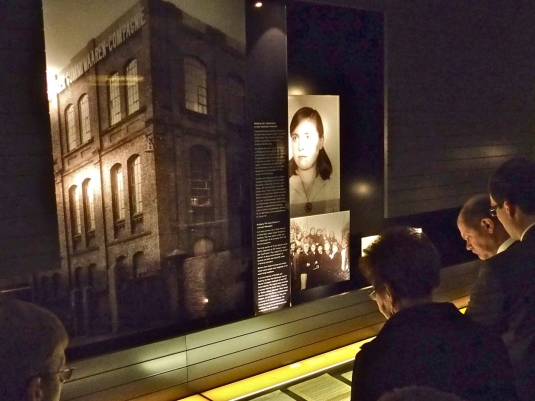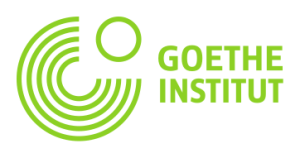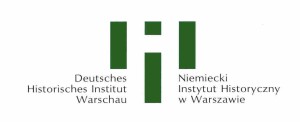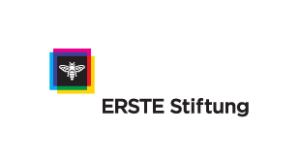22.04.16 – Workshop: Reframing Forced Labour
22.04.2016 – 13:00
Reframing Forced Labour: Belarusian perspectives of forced labour in the Russian
Empire, the Soviet Union, and Nazi Germany
Workshop/Round Table
This workshop will bring scholars together from Belarus, Poland, Sweden, and Germany to discuss recent research on forced labour, with a focus on Belarusian experiences of forced labour. Forced labour, whether experienced “at home” or in a foreign environment, will be discussed as a systematic and modern means of physical destruction employed to punish,re-educate, and economically exploit labourers. Felix Ackermann (Warsaw) will open the workshop with his paper on nineteenth century punishment practices. He will show the extent to which concepts of labour were a part of prison reform programs and will analyse forced labour in nineteenth century prisons as part of a larger modernization program. Iryna Ramanava (Minsk) will continue the discussion with her presentation on forced labour practices particular to peasants in Stalinist Belarus. Ramanava will focus on the crackdown on Kulaks. Imke Hansen (Uppsala) will examine the perceptions of former Belarusian forced labourers and how their retrospective narratives correspond to collective interpretations of forced labour in Belarus and Germany. By analysing oral history interviews, she will
investigate how interviewees retrospectively integrated their own experiences of forced labour into their biographies and world views. Iryna Kashtalian (Minsk) will elaborate on former forced labourers postwar adaptation to life in Soviet Belarus. Gülay Gün (Hamburg), responsible for a recent exhibition on forced labour at the Hamburg Museum of Labour, will join the concluding public round table discussion.
13:00 Welcome, Almira Ousmanova & Frank Baumann
13.15 Felix Ackermann (Warsaw): Punishment and Labour
The global reform movement and its impact on Russian prisons
14:00 Сoffee
14.30 Iryna Ramanava (Minsk/Vilnius): Arkhipel Kulak
The peasant colonization of peripheral parts of the Soviet Union
15.30 Imke Hansen (Uppsala): Narrations of former “Ostarbeiter” and their correspondence to representations of forced labour in Belarus and Germany
16.30 Сoffee
17.00 Iryna Kashtalian (Minsk): Ostarbeiters coming back home? The reintegration of former forced in Soviet Belarus
18.00 Public Roundtable: Memory or oblivion?
A twenty-first century perspective on forced labour in Belarus and Germany
Prof. Iryna Ramanava
is a historian specializing in the social history of the twentieth century. She teaches at European Humanities University in Vilnius, where she is responsible for BA and MA programs in heritage studies. Among her research interests is the everyday experiences of Soviet citizens in peripheral parts of the Byelorussian Soviet Socialist Republic in the 1920s and 1930s.
Dr. phil. Iryna Kashtalian
specializes in oral history. After defending her PhD thesis about everyday life in Western Belarus after World War II at Freie Universität in Berlin, she founded a Minsk-based Belarusian Oral History Archive. The archive, nashapamiac.org, collects interviews and promotes a methodology for conducting and recording oral history interviews. She has organized several expeditions to rural areas in western Belarus, where elderly individuals were interviewed about their twentieth century experiences. Dr. Kashtalian has been working at Geschichtswerkstatt IBB in Minsk since February 2016.
Dr. phil. Imke Hansen
is a historian and political scientist, specializing in Eastern European contemporary history, memory studies, and oral history. She is currently based at Uppsala University’s Hugo Valentin Centre. She collaborated on the document collection project, “The Persecution and Murder of the European Jews by National-Socialist Germany 1933-1945.” And, as a court expert in history, she provided evidence for the controversial ghetto pension claims cases (ZRBG). As a researcher, Dr. Hansen has continued to publish widely on Holocaust history, memory,
and East European transformation.
Gülay Gün M.A.
studied history, religions, and European studies in Bremen, Frankfurt (Oder), and Istanbul. She joined the Hamburg Museum of Labour as a fellow of the Alfred-Töpfer Foundation program, Cultural Diversity and Migration in Museums. Since 2015, she has been a project manager of the exhibition, “Forced Labor: The Germans, the Forced Laborers and the War.” She is particularly interested in critical whiteness, collective memory, and cultures of remembrance in post-migrant societies.
Dr. phil. Felix Ackermann
is research fellow at the German Historical Institute Warsaw, where he started a project on the history of punishment in the former territories of Rzeczpospolita during the period of partitions. He is a historical anthropologist and focuses his work on urban history, forced migration, and critical ethnicity studies in central and Eastern Europe. Among his recent projects are urban studies of Visaginas and Vilnius as post-socialist spaces. In Vilnius, he is member of the Laboratory of Critical Urbanism.
______________
Sponsoring Organizations: German Historical Institute Warsaw, European Humanities University (Vilnius), Goethe-Institut (Minsk), German Embassy (Minsk), Galeria Ў, Erste Stiftung
Organizer: Felix Ackermann, German Historical Institute Warsaw
Photo Copyright @ Jürgen Ellermeyer




